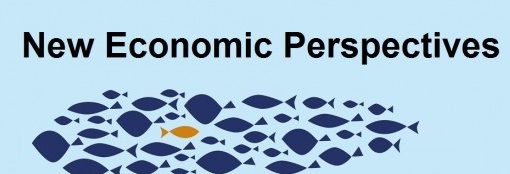By William K. Black Trump’s bigotry de jour was quadrupling down on his claim that the judge hearing the fraud lawsuit against the Trumphemistically-named “Trump U” (which was not a university and involved solely Trump’s wallet rather than his “leadership”) was biased against Trump because the judge, while born here, was of Mexican descent. Trump’s free-floating bigotry is, of course, simply the norm, so the story here is the reaction of GOP leaders who have made public their support for...
Read More »Money and Banking Part 17: History of Monetary Systems
By Eric Tymoigne This is the last post of this series. Many more topics need to be covered to make a full Money and Banking course, but the series should help those of us who are dissatisfied with the current Money & Banking textbooks (I don’t use any). Here is what is coming up in the near future: I will edit all the posts for typos (most of them hopefully) and to account for comments I received. Devin Smith kindly agreed to post the changes without changing any of the links....
Read More »Money and Banking Part 16: FAQs about Monetary Systems
By Eric Tymoigne The following answers a few question in order to illustrate the previous post and to develop certain points. Q1: Can a commodity be a monetary instrument? Or, does money grow on trees? Let us tackle the idea that “gold is money”. Clearly, a gold ingot is not a monetary instrument. There is no issuer, no denomination, no term to maturity or any other financial characteristics. A gold ingot is just a commodity, a real asset not a financial asset. On the other hand, gold coins...
Read More »Money and Banking Part 15: Monetary Systems
By Eric Tymoigne Throughout this series, posts have used balance sheets extensively to get an understanding of the monetary operations of developed economies, but nothing has been said about what a monetary instrument is. It is time to spend some time on the nature of monetary instruments and the inner workings of monetary systems. A monetary system is composed of two core elements: A unit of account that provides a common method of measurement: the euro (€), the pound sterling (₤), the yen...
Read More »Cochrane Proposes “Restoring the Rule of Law” by Lettide facto ng CEOs Defraud with Impunity
By William K. BlackMay 16, 2016 Bloomington, MN John Cochrane is a theoclassical economist. I struggle to explain to readers how radical theoclassical economics has become. The more their anti-regulatory policies prove disastrous the more extreme their policies become. Cochrane wrote a column recently in the Wall Street Journal that exemplifies this pattern. We are just emerging from the worst financial crisis since the Great Depression. The three “de’s” (deregulation,...
Read More »Mankiw’s Mythical Ten Commandments of Theoclassical Economics
By William K. BlackMay 16, 2016 Bloomington, MN This is the second column in a series on the N. Gregory Mankiw’s myths and dogmas that he spreads in his economic textbooks. The first column exposed the two (contradictory) meta-myths that begin his preface. This column de-mythologizes Mankiw’s unprincipled “principles” of economics – the ten commandments of theoclassical economics’ priestly caste. Some of these principles, correctly hedged, could be unobjectionable, but in each case...
Read More »The Unprincipled and Mythical Mankiw Principles of Economics
By William K. BlackMay 15, 2016 Bloomington, MN In this first installment I discuss the unacknowledged contradiction that lies at the core of the two meta-myths in the preface to N. Gregory Mankiw’s textbooks. Mankiw is among the leading providers of introductory economics textbooks. In his preface to these volumes he preaches his first meta-myth in his first substantive sentence about economics. Economics combines the virtues of politics and science. It is, truly, a social science....
Read More »Stop Calling Deals That Help CEOs Pillage with Impunity “Free Trade”
By William K. BlackMay 14, 2016 Bloomington, MN This is the second column in my series on the “Mankiw’s myths and Mankiw morality.” In the first column I showed that N. Gregory Mankiw’s own unprincipled principles of economics predicted that the financial system would be rigged by and for the financial CEOs. In his New York Times column Mankiw purported to be writing to dispel myths, but actually did the opposite, asserting that the financial system could not be rigged. I explained...
Read More »A Global Marshall Plan for Joblessness?
By Pavlina Tcherneva(Crossposted from INet) Global unemployment is expected to surpass 200 million people for the first time on record by the end of 2017, according a recent ILO study, and limitations of official statistics suggest that the problem is much larger . As conventional measures increasingly fail to produce tight labor markets and jobless recoveries become the norm, economists grapple with this new reality by calling it secular stagnation and by adjusting upwards the rates of...
Read More »Money and Banking Part 14: Financial Crises
By Eric Tymoigne While visiting the London School of Economics at the end of 2008, the Queen of England wondered “why did nobody notice it?” In doing so, she echoed a narrative that had been promoted among some prominent economists: the Great Recession (“it”) was an accident, a random extreme event and no one so it coming. This narrative is false. Quite of few economists saw it coming and it was not an accident. A previous post showed how different theoretical framework about financial...
Read More » New Economic Perspectives
New Economic Perspectives




